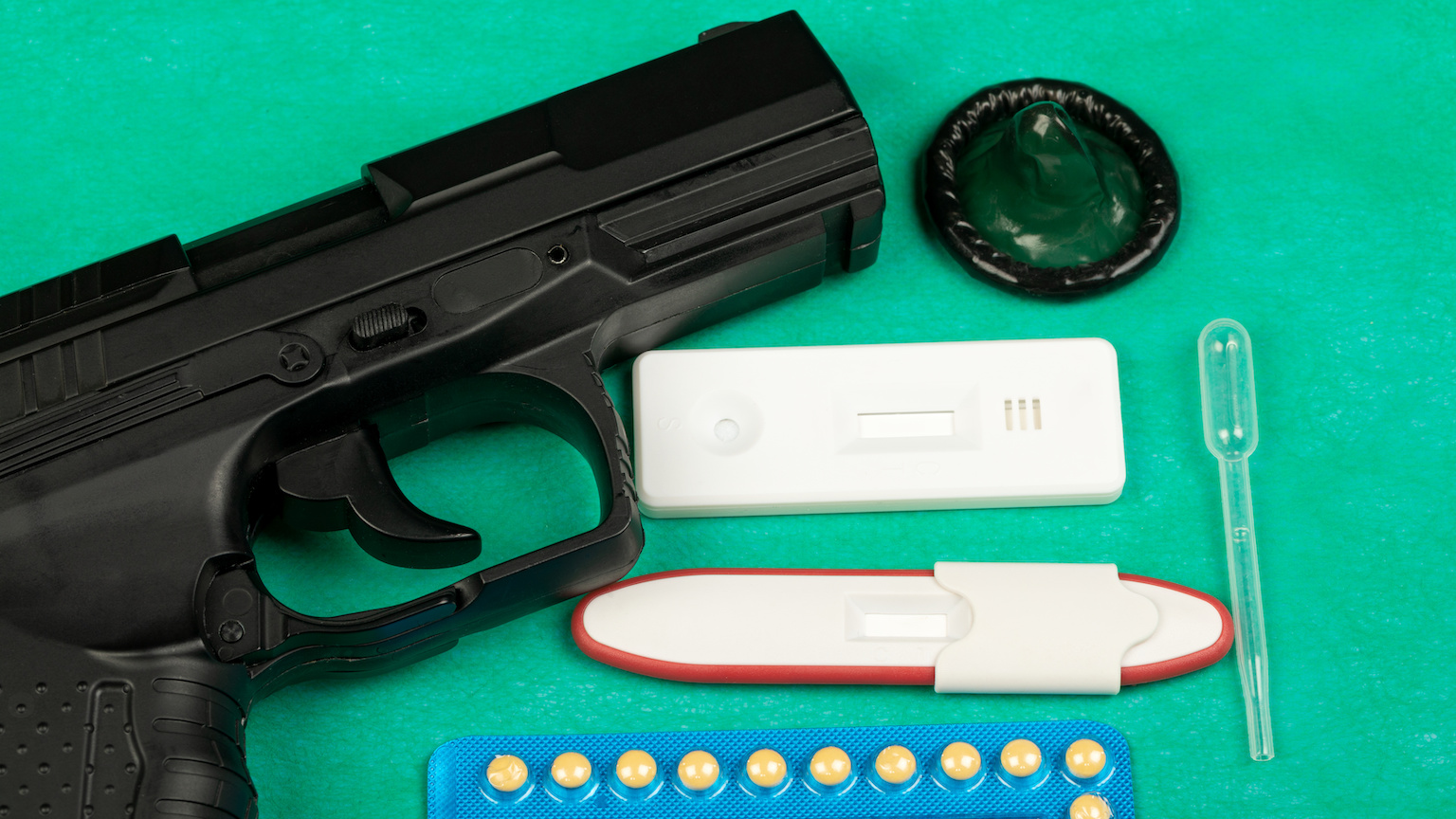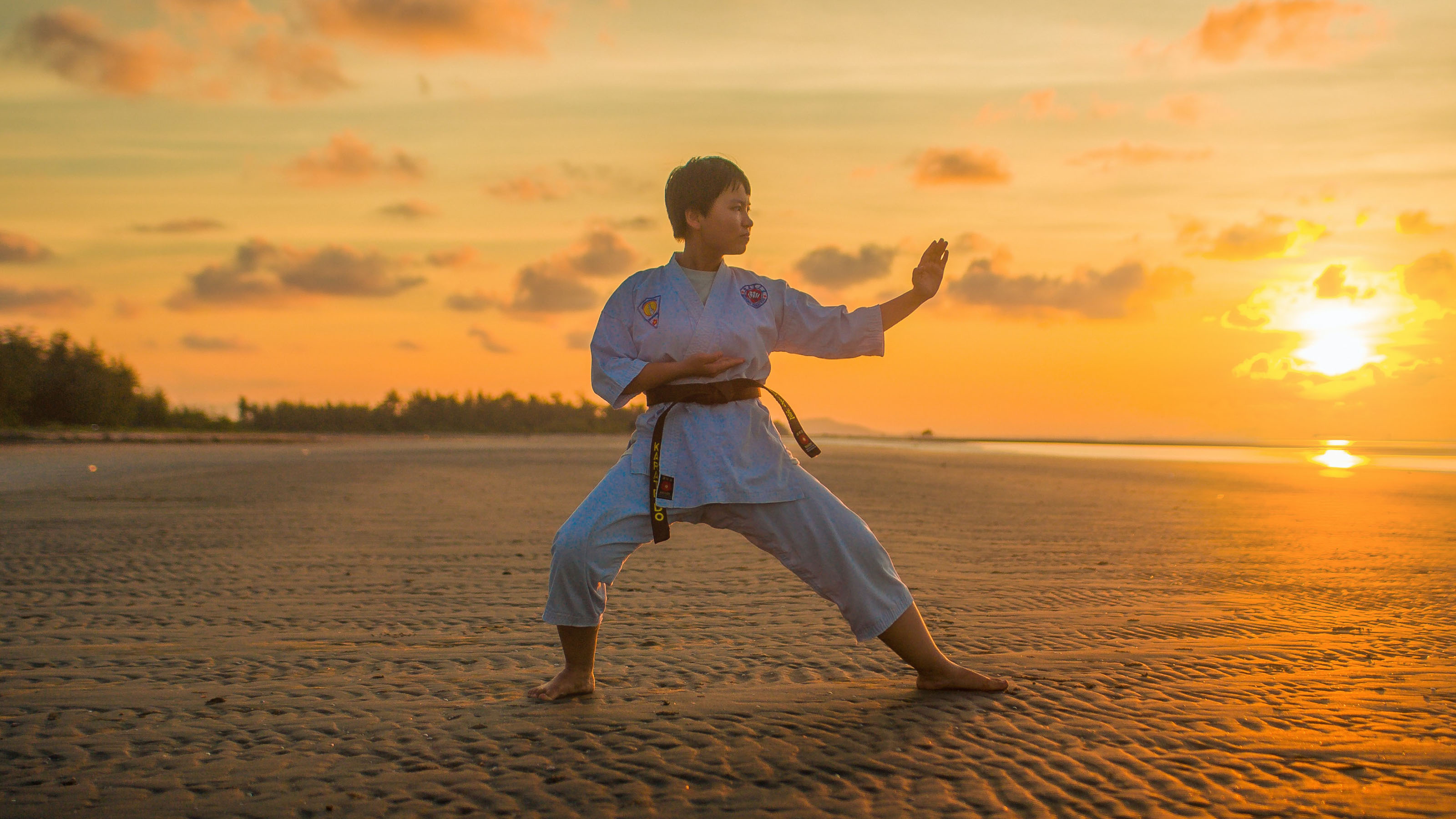What does “pro-life” even mean anymore?

- There are two tenets to a pro-life philosophy: protecting life and maximizing human potential.
- If people who describe themselves as pro-life think through the ramifications of these principles, they can arrive at more logically and morally consistent positions on issues like abortion and gun control.
- Unfortunately, politics often trumps philosophy, leading to a moral hypocrisy that arises from a fundamental lack of self-reflection.
Robb Elementary in Uvalde, Texas has been added to our nation’s long and ignominious list of school shootings. Predictably and pathetically, the political finger-pointing began within minutes. And the tired debate (or perhaps “shouting match”) over gun rights was once again reawakened.
One feature of the debate, however, is a little different this time around. Those who favor tighter gun restrictions are pointedly asking how people who claim to be “pro-life” (in the abortion debate) can simultaneously be opposed to gun restrictions that are aimed at preventing massacres. It’s a fair question. Many of the most ardent pro-lifers are also strong proponents of the Second Amendment. (The response, typically, is that the restrictions won’t work, since criminals don’t follow the law.)
But there is a bigger philosophical question that is being left unaddressed, and it is very much worth pondering: What does “pro-life” even mean anymore?
What does “pro-life” mean?
On its face, the term “pro-life” resembles a strawman argument. The not-so-subtle accusation is that the opposition is “pro-death,” but — perhaps other than mafia hitmen and undertakers — very few people would call themselves “pro-death.” So, in an attempt to get a better understanding of what the word entails, let’s unpack what a pro-life philosophy might look like.
Most pro-lifers would probably agree that a pro-life philosophy is one that:
- Values the sanctity of human life and believes that it must be protected and cherished; and
- Maximizes human potential and flourishing.
Perhaps importantly, even people who do not explicitly identify as “pro-life” would agree with those sentiments. Indeed, they are fairly universal principles.
Implications of a pro-life philosophy
Assuming that definition is at least somewhat accurate, it has some major implications for anyone who labels themselves “pro-life,” especially when it comes to the two major debates currently broiling in America: abortion and gun control. Let’s examine each.
Abortion. The abortion debate is muddied by the terms “pro-life” and “pro-choice.” Indeed, the argument is framed as a binary choice, but this is a false dilemma. It is quite possible to be pro-choice up to a point (say, the end of the first trimester) and pro-life after that. This thinking forms the basis of many European laws on abortion, which (unbeknownst to most Americans) are much more conservative. In Germany, for example, abortions (though technically illegal) are allowed for any reason within the first 12 weeks of pregnancy, provided that the woman seeks counseling and undergoes a mandatory three-day “cooling off” period. After 12 weeks, abortions are only allowed for medical reasons (including the health of the mother and/or unborn child).
This might sound incredibly restrictive to pro-choicers, but it’s not. According to the CDC, roughly 93% of abortions occur within the first trimester in the U.S. Late-term abortions (at or after 21 weeks) are rare; they constitute fewer than 1% of abortions. Most women who do not want a child abort early in the pregnancy, while reasons for late-term abortions vary considerably.
In the U.S., the debate is dominated by voices that lack nuance, with pro-choicers being in favor of abortion on demand and pro-lifers being opposed to abortion in most circumstances. Regarding the latter, this position is certainly aligned with both tenets of a pro-life philosophy outlined above, but it runs afoul of situations in which a woman is socioeconomically unprepared to raise a child. If being pro-life includes point #2 (that is, maximizing human potential and flourishing), forcing an impoverished woman to have a baby seems to be at odds with it. Of course, a pro-lifer likely would counter that point #1 overrules #2 in this instance. Fair enough, but many won’t be convinced by that argument.
Gun control. Unlike the abortion debate, a pro-life philosophy seems to force one and only one conclusion: There should be fewer guns. It is certainly difficult to imagine how a pro-life philosophy could lead a person to believe that the status quo is acceptable, given that guns clearly violate both tenets of the pro-life philosophy. Claiming that guns are consistent with point #1 (that is, protecting life) is dubious. As a general rule, guns are not primarily used for self-defense; instead, they’re used to intimidate others and commit crimes. (For the sake of this discussion, we’re excluding guns used for sport or hunting.)
Even if we are to accept the self-defense argument, we must consider that guns probably kill more people than they save. According to an analysis by Pew, there were 45,222 gun-related deaths in the U.S. in 2020. Of those, 54% were suicides and 43% were homicides. If life is sacred, are these lives not worth protecting? (Note that suicide is very impulsive, and implementing small barriers helps reduce them.)
How many lives are saved by the defensive use of guns? It’s impossible to say. Dead bodies are tangible (and, importantly, countable); “not dead” ones aren’t. One prominent study published by the National Academies suggested that defensive gun use might be just as common as criminal use, but the study also noted that the number of defensive uses is controversial. And even if we knew exactly how many times guns were used defensively, how would we know if lives were saved because of them? Unfortunately, the question is unanswerable because counting murders that didn’t happen is largely a guessing game.
There is one big hint that guns take more lives than they save, and that is the fact that the U.S. has a higher homicide rate than peer countries. Simply put, it is harder to kill someone without a gun. If that conclusion is correct, then the pro-life position on gun control should be obvious.
Yet, as mentioned above, many pro-lifers are Second Amendment supporters who oppose gun restrictions. Likely, they would defend this position by claiming to be both pro-life and pro-freedom (or pro-Bill of Rights). However, this pits two principles against each other: the sanctity of human life and the right to own a gun. These principles do not inhabit the same moral universe. If forced to choose (and ongoing events make it clear that we must choose), the former is infinitely more important than the latter.
Politics vs. philosophy
One of the things that makes politics so toxic is that it prevents otherwise intelligent people from thinking through the ramifications of their stated beliefs. Indeed, we could apply this same methodology to discover the most logical pro-life positions on capital punishment, embryonic stem cell research, vaccine mandates, and a whole host of other controversies.
But instead of thoughtful philosophy, we get knee-jerk tribal loyalty — and, often along with it, ethical positions that appear arbitrary, inconsistent, and contradictory. Regardless of political ideology, one of the few things that many Americans — and humans, in general — seem to have in common is a moral hypocrisy that arises from a fundamental lack of self-reflection.





